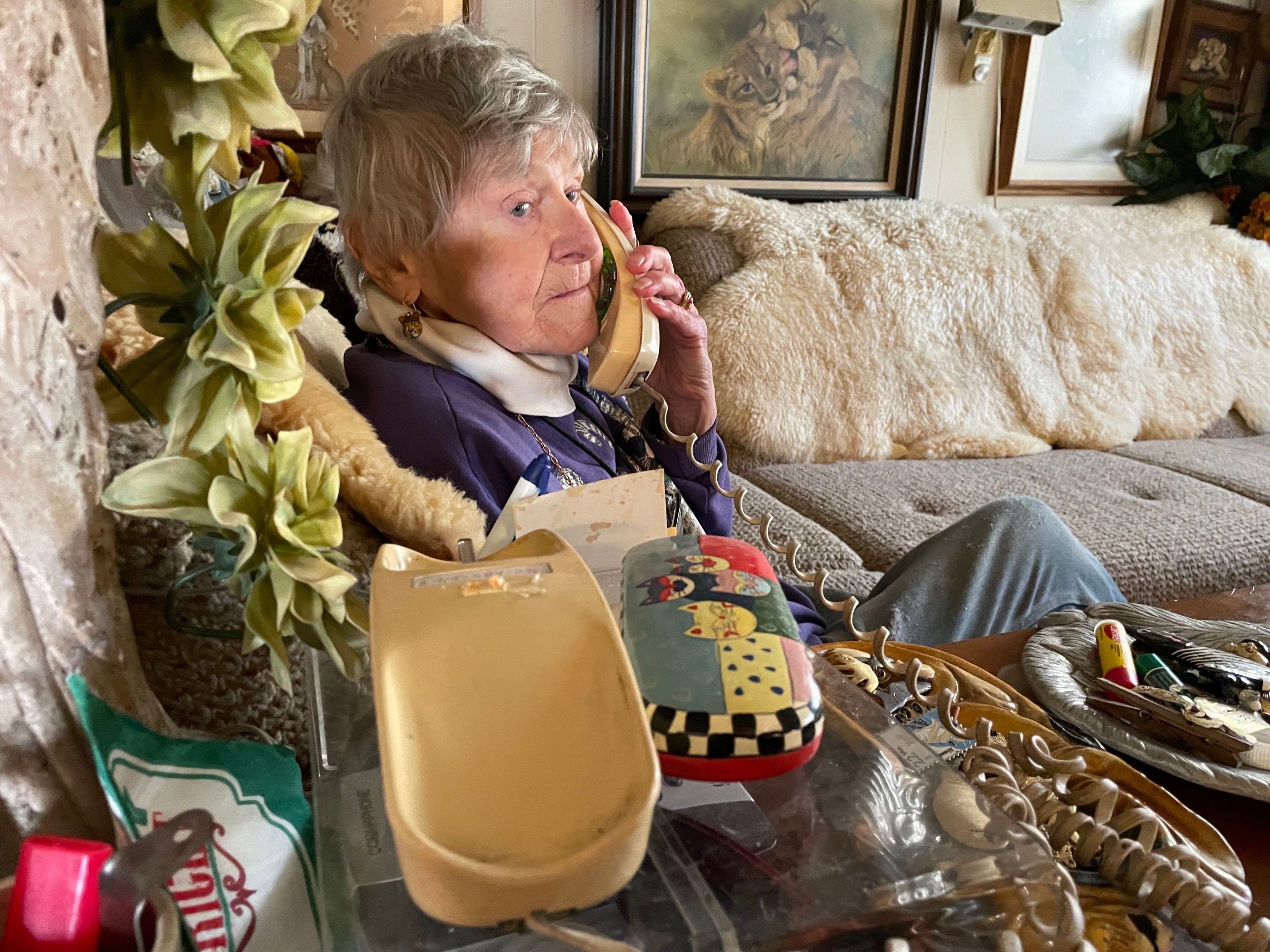Landline telephone service may be going the way of the buggy whip if AT&T has its way—and some customers are putting up a fight.
The telecom giant estimates less than 7% of California households in its service area use traditional copper-based landline phones. As consumers continue to switch to broadband and mobile service, the company asked state regulators at the California Public Utilities Commission last year to phase out its obligation to provide landlines.
For rotary phone devotee Rose Ann Harris, 88, the discontinuance would be life-changing.
The Excelsior District resident is among landline users advocating to keep things as they are, preferring landlines for their clear call quality, functionality in the event of a power outage and as an alternative when cellular signal reception is poor.
Harris said she benefited from her analog lifestyle just last weekend when storms knocked out PG&E electrical service across much of the region.
“Even though I didn’t have electricity for the whole weekend, I had my rotary phone, I had my gas heater, I had my gas stove and I would play cassettes,” Harris said. “And that’s all I have. I don’t have any of your machines or any of your buttons.”
“I’m a complete dinosaur, but I’m very happy,” Harris added.
The Rev. Glenda Hope, 87, a resident of the Outer Mission, is afraid of losing service and being stuck with a new service at higher rates.
“This feels like another abandoning of seniors by corporations who have welcomed our support and money in the past but have no qualms about cutting us off,” Hope said.
And Harris and Hope aren’t the only ones expressing themselves about AT&T’s pending application. The proposal has received more than 2,600 public comments online ahead of hearings before a judge on the matter.
The question of how to get help in an emergency tops the list of citizens’ concerns.
San Francisco police and fire department representatives declined to comment on the pending changes to landline service, but officials said the Department of Emergency Management was closely monitoring the situation.
The department is keeping an eye on “how AT&T will ensure anyone in San Francisco who may not have alternate means to traditional landlines such as voice-over-internet phones and/or cellular phones will have uninterrupted access to telephone communication,” a spokesperson said.
AT&T said no one would be left on one side of the digital divide.
“Our California customers will also continue to have access to 911,” a spokesperson said. “Newer digital voice services have access to 911 and use technology that make it quicker and easier for customers to reach first responders.”
A new set of scheduled dates for the proceedings about the discontinuation proposal will be released soon, according to California Public Utilities Commission spokesperson Terrie Prosper.
In the meantime, Harris is planning to arrange letter-writing sessions with her neighbors to spread the word about the matter.
“That’s my only line of communication,” Harris said. “And there are lots of people like me that don’t communicate with all of you guys. We just live in our own little pattern—and we’re just all very happy about it.”
